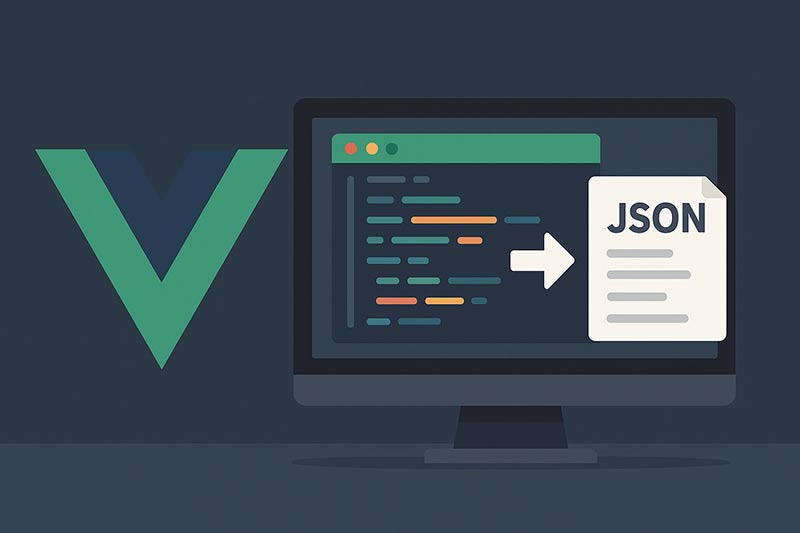Vue.jsは、柔軟で使いやすいフロントエンドフレームワークであり、外部データを動的に読み込むことも非常に簡単です。この記事では、JSONファイルからデータを取得し、Vue.jsアプリケーションで表示する方法を詳しく説明します。
JSONファイルの準備
プロジェクト内に、データを格納するためのJSONファイルを作成します。例えば、data.json という名前で以下のようにデータを記述します。
{
"items": [
{ "id": 1, "name": "Item 1", "description": "This is item 1" },
{ "id": 2, "name": "Item 2", "description": "This is item 2" },
{ "id": 3, "name": "Item 3", "description": "This is item 3" }
]
}このファイルをプロジェクトの適切なディレクトリに保存します。
Vue.jsでのデータ取得方法
次に、Vue.jsを使ってこのJSONファイルからデータを取得する方法を紹介します。fetch APIを使用して、データを非同期で取得し、コンポーネントに反映します。
<template>
<div>
<h1>Items</h1>
<ul>
<li v-for="item in items" :key="item.id">
<h2>{{ item.name }}</h2>
<p>{{ item.description }}</p>
</li>
</ul>
</div>
</template>
<script>
export default {
data() {
return {
items: []
};
},
created() {
// JSONファイルを取得
fetch('/path/to/data.json')
.then(response => response.json())
.then(data => {
this.items = data.items;
})
.catch(error => console.error('Error fetching JSON:', error));
}
};
</script>このコードでは、fetchメソッドを使用してJSONファイルを取得し、そのデータをitems配列に格納しています。
axiosを使ったデータ取得方法
fetchの代わりに、より多機能なHTTPクライアントであるaxiosを使う方法もあります。まず、axiosをインストールし、その後にデータを取得します。
axiosのインストール
以下のコマンドでaxiosをインストールします。
npm install axiosaxiosを使ったデータ取得
次に、以下のようにaxiosを使ってデータを取得し、コンポーネントに表示します。
<template>
<div>
<h1>Items</h1>
<ul>
<li v-for="item in items" :key="item.id">
<h2>{{ item.name }}</h2>
<p>{{ item.description }}</p>
</li>
</ul>
</div>
</template>
<script>
import axios from 'axios';
export default {
data() {
return {
items: []
};
},
created() {
axios.get('/path/to/data.json')
.then(response => {
this.items = response.data.items;
})
.catch(error => console.error('Error fetching JSON:', error));
}
};
</script>こちらのコードでは、axios.getメソッドを使ってJSONファイルからデータを取得し、そのデータをitems配列に格納しています。
まとめ
Vue.jsでJSONファイルからデータを取得する方法はとても簡単です。fetchやaxiosを使うことで、外部データを手軽に扱うことができます。適切なエラーハンドリングも行い、安定したアプリケーションを構築しましょう。

